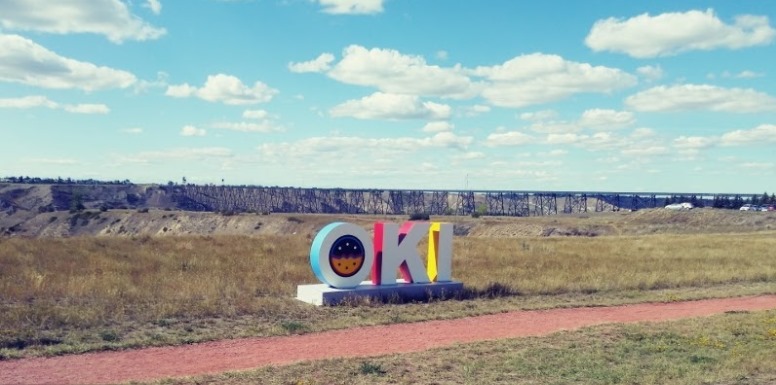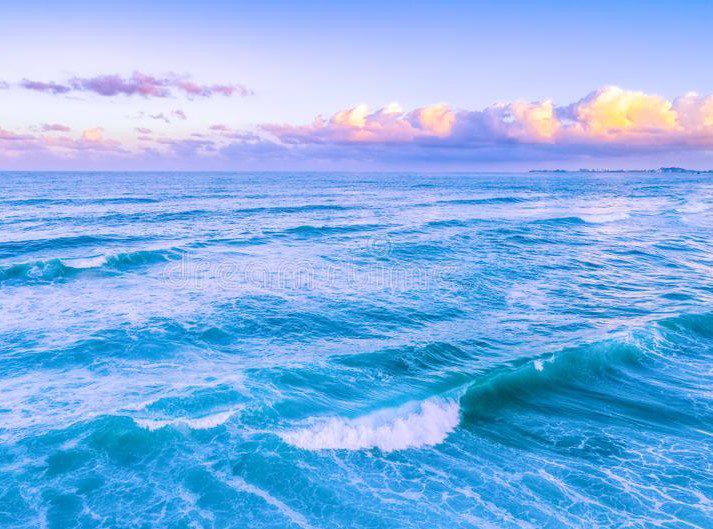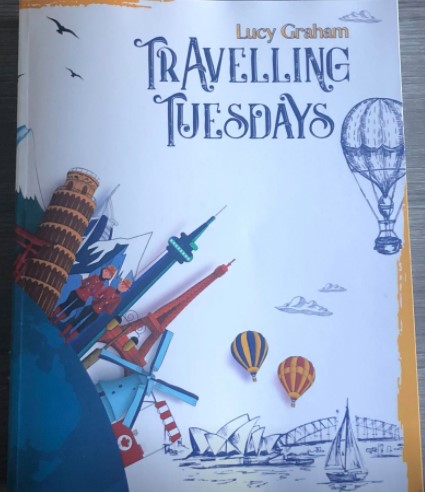Make Waves and Don’t Get Tide Down
Make Waves and Don’t Get Tide Down - Day 382- Daily Content Challenge
Oceans are areas of salty water. Our planet has one continuous body of saltwater that covers nearly 71% of the surface of the Earth. Geographers and scientists divide the ocean into five different sections. The Pacific is the largest ocean in both surface area and volume. The Atlantic is the next largest. Then comes the Indian, the Southern and the Arctic Oceans.
The words ‘sea’ and ‘ocean’ are often used to mean the same thing but a sea is a small area of an ocean, usually with land on several sides. The Mediterranean Sea is nestled between Africa and Europe. The Baltic Sea is in northern and central Europe. The Caribbean Sea is between North, Central and South America.
Oceans are deep too. On average an ocean is a little over two miles deep. The deepest part of the ocean is in the Mariana Trench which is located 200 miles southwest of Guam in the Pacific Ocean. Here it is almost seven miles deep.
About one million species of animals live in the ocean. Sea animals like zooplankton can only be seen with a microscope. Big fish such as the great white shark swim through these waters too. The largest animal to ever live on Earth is an ocean mammal. The blue whale, which is as long as two school buses, also lives in the ocean. Plants grow in the ocean too. Tiny algae called phytoplankton and bigger algae like seaweed and kelp grow in the ocean and provide food and shelter for marine animals.
Coral reefs are one type of habitat found in the ocean. When tiny animals called polyps die, their skeletons harden so other polyps can live on top of them. More move in when those polyps die. After thousands of years, this complex structure becomes a coral reef that provides food and shelter for many kinds of ocean animals.
Waves are created by energy passing through the water. They can be caused by earthquakes, volcano eruptions and landslides but the most common waves are surface waves caused by winds. When wind blows over large areas of the ocean, a series of crests and troughs are formed. As waves break on the shore, water from previous waves runs underneath the wave that is currently breaking, creating a gentle current that floats to the bottom of the ocean. This current can pull you toward the ocean floor.
As the waves in the back move forward, they grow in size and then diminish as they reach the front. Waves become more unstable as they grow with the force of gravity tugging at their tallest, weakest points. The crests of the waves break apart into a mass of droplets and bubbles, which scatter the surrounding light in every direction. This creates the white crest of a breaking wave. Surfers tend to notice that the fifth or seventh wave is the biggest and they call it the set wave.
Tides are the rise and fall of water levels in the ocean that are due to gravitational pulls caused by the moon and the sun. Tides are very long waves that move across the oceans. When the highest point in the tidal wave reaches a coast, it is high tide.
Ocean waves of seismic origin are called tsunamis.
These are the sayings on the bookmark called Advice from an Ocean.
-
Be shore of yourself
-
Come out of your shell
-
Take time to relax and coast
-
Avoid pier pressure
-
Sea life’s beauty
-
Don’t get tide down
-
Make waves!
Here are my comments about each of these sayings.
-
Be shore of yourself - I love this play on words. Shore for sure. Be sure of yourself.
-
Come out of your shell - Many marine animals have shells. Don’t hide, rather come out of your shell and share your unique gifts with others.
-
Take time to relax and coast - Coast - another word with more than one meaning. The east coast, west coast or just coast along. Automation. If things are on autopilot, you can take time to relax and coast.
-
Avoid pier pressure - Pier for peer.
-
Sea life’s beauty - Sea for see.
-
Don’t get tide down - Tide for tied.
-
Make waves! - Waves are caused by energy. Be energetic!
Have a great day everyone. Make waves and don’t get tide down.
# living life abundantly # published author # travelling tuesdays



